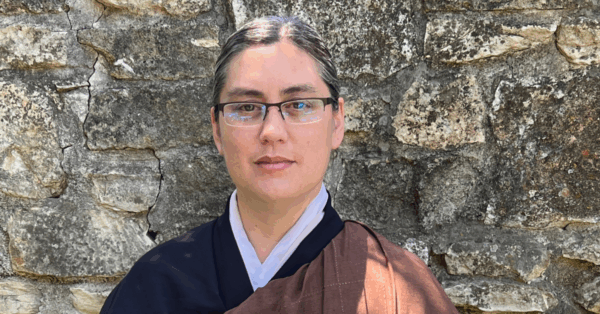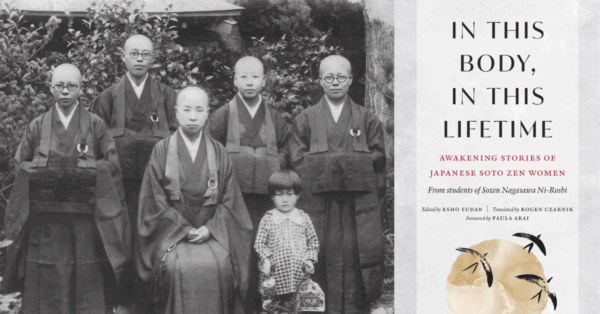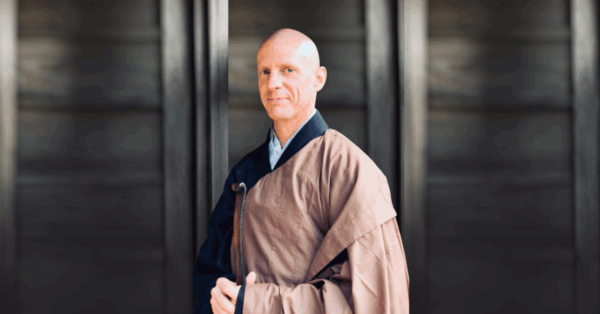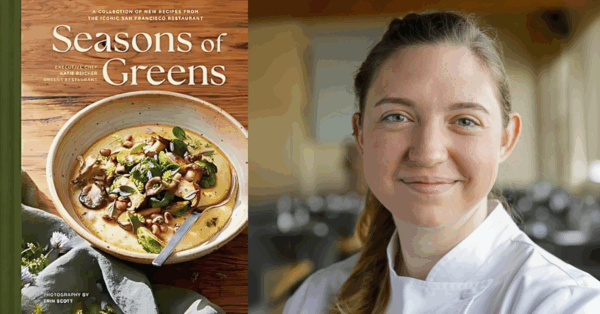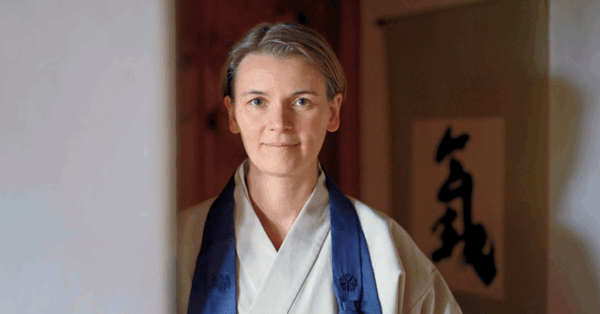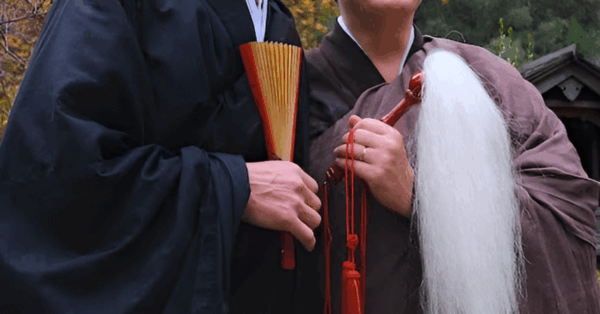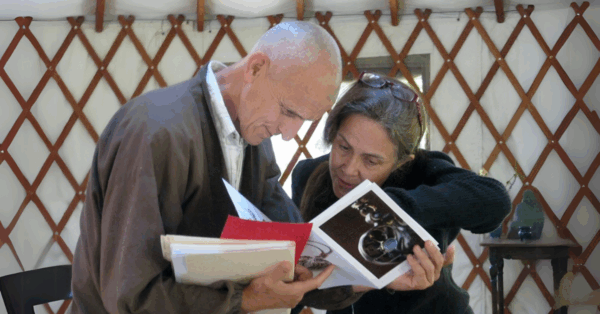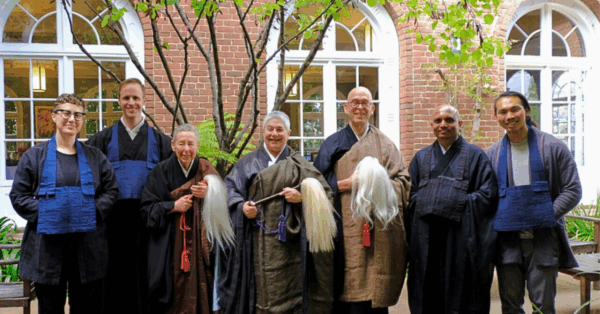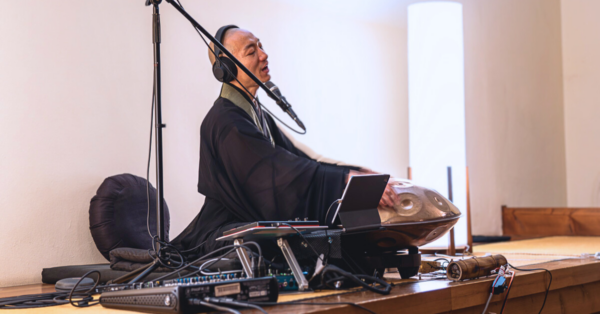by Tova Green
Sowing the Moon Teahouse at Green Gulch Farm has resumed monthly Sunday afternoon tea gatherings through Zoom. For two decades, prior to Covid-19, Meiya Wender and her tea students had hosted Sunday teas in this teahouse built in the traditional Japanese style, within the enclosed space of a tea garden. During the past year, Meiya has been learning that it is possible to host tea gatherings virtually. She is looking forward to the first online Sunday Tea Gathering, on 4/11 (sfzc.org)
I met with Meiya to learn about her path to becoming a tea teacher and to hear how it has been to practice tea during the Covid-19 pandemic.
The Way of Tea is a Japanese tradition passed down over centuries, which emphasizes coming together not only to share a bowl of tea, but to understand the ways our lives are connected and mutually supported. This happens as the host welcomes her guests, prepares the tea in a formal way, and enters into conversation. The flower arrangement, the scroll on the wall, the tea bowls and utensils, are selected to convey a message particular to each gathering.
Meiya, who has practiced at San Francisco Zen Center since 1972, first began studying tea with Suzuki Roshi’s wife, Mitsu Suzuki Sensei, in 1979. Sensei taught at City Center in a tatami floored room on the second floor. She would warmly welcome her students, whisk bowls of macha (powdered green tea), and serve a traditional Japanese treat.Â
A few years later, Meiya moved from City Center to Green Gulch Farm, where she became the assistant to Nakamura Sensei, a Japanese tea teacher who was living at Green Gulch. Meiya studied tea with Nakamura Sensei for two years. In her role as assistant, she would drive Nakamura Sensei into San Francisco for a class at the Urasenke Foundation. After the class they would shop in Japantown, have a sushi dinner, and return to GGF.Â
Nakamura Sensei returned to Japan and for several years Christy Bartlett, the head teacher at the Urasenke Foundation, taught at Green Gulch, as did a resident, Jerry Fuller, who had studied tea at the Midorikai in Kyoto, Japan. When Jerry died, Christy suggested that Meiya train in Japan in order to teach tea and take care of the teahouse. Meiya went to Kyoto for a year of study in 1997. She has been teaching the way of tea at Green Gulch ever since.
The Way of Tea is a practice and art that developed in the 15th and 16th centuries in close conjunction with Zen. Meiya says, “It’s about etiquette, although not the Emily Post kind. The Buddha taught etiquette — how to live your life in a way that’s beneficial for others. In the tea room you learn how to be respectful of one another. It’s hard to teach and convey that. In the tea room it’s very well articulated. If you learn how to behave in the tea room it carries over to the zendo. This is a format for teaching Zen.†Meiya says ” a tea student for your whole life, because it’s a practice…tea gives the opportunity of deepening one’s practice endlessly.”
At the start of the Covid-19 Pandemic at first everything was completely closed down at Green Gulch Farm. The tea house was empty. None of Meiya’s students who lived outside Green Gulch could come for classes. Eventually she began to have weekly online classes with them. They were all senior tea students who could prepare tea in their own homes, had the space and the equipment.
Some newer Green Gulch residents were interested in tea so Meiya started a class outdoors. They meet on the pool deck sitting at picnic tables. She cannot teach in the traditional way — having beginners learn how to enter the tea room, how to bow to the tokonoma, and sit in seiza (kneeling), and she misses that.
Meiya hosted online tea gatherings at the end of 2020 which were attended by people all over the country and went very well. These gatherings showed her the possibilities for offering tea program via Zoom.
Meiya is looking forward to the monthly online tea gatherings, to sharing the experience of the Way of Tea with participants near and far.


